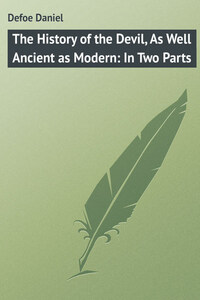GENERAL EDITORS
William E. Conway, William Andrews Clark Memorial Library
George Robert Guffey, University of California, Los Angeles
Maximillian E. Novak, University of California, Los Angeles
David S. Rodes, University of California, Los Angeles
ADVISORY EDITORS
Richard C. Boys, University of Michigan
James L. Clifford, Columbia University
Ralph Cohen, University of Virginia
Vinton A. Dearing, University of California, Los Angeles
Arthur Friedman, University of Chicago
Louis A. Landa, Princeton University
Earl Miner, Princeton University
Samuel H. Monk, University of Minnesota
Everett T. Moore, University of California, Los Angeles
Lawrence Clark Powell, William Andrews Clark Memorial Library
James Sutherland, University College, London
H. T. Swedenberg, Jr., University of California, Los Angeles
Robert Vosper, William Andrews Clark Memorial Library
CORRESPONDING SECRETARY
Edna C. Davis, William Andrews Clark Memorial Library
EDITORIAL ASSISTANT
Beverly J. Onley, William Andrews Clark Memorial Library
Typography by Wm. M. Cheney
Opinion is a mighty matter in war, and I doubt but the French think it impossible to conquer an army that he leads, and our soldiers think the same; and how far even this step may encourage the French to play tricks with us, no man knows.
Swift's Journal to Stella, 1 January 1711
… the moment he leaves the service and loses the protection of the Court, such scenes will open as no victories can varnish over.
Bolingbroke's Letters and Correspondence,
23 January 1711
The career of John Churchill, Duke of Marlborough, reflects the political battles of nearly thirty years of English politics. In an age when duplicity, intrigue, personality, and an immediate history of violence characterized politics, John Churchill was a constant, steady military success even while his political and personal fortunes alternately plunged and soared. His military ability insured his importance to the Grand Alliance and his victories brought the reverence of the European powers opposing Louis XIV as well as that of his own people, but, at the same time, his successes also assured his involvement with the fortunes of nearly every major English political figure and movement in the years 1688 to 1712.
Marlborough's military career spanned two periods. Aware of the danger of the "exorbitant power of France" and the corresponding danger to the Protestant religion, disgusted with James's actions at the Gloucester shipwreck and in dealing with Scottish Protestants, Marlborough had joined the bloodless shift to William of Orange. For William, he led the English forces in Flanders in 1689 and in Ireland in 1690; in 1691 he was in charge of the British forces in Europe with the rank of lieutenant-general. In January, 1692, however, Marlborough was dismissed from all of his offices for a combination of reasons, each insufficient in itself but all too typical for him – open opposition to William's Dutch dominated army, rumors that he and Sarah, his ambitious and sometimes presumptuous wife, were plotting Anne's usurpation of the throne, and dissension aroused between Anne and her sister Queen Mary by the quixotic Sarah. When rumors of a Jacobite uprising began, Marlborough spent six weeks in the Tower.
Although Marlborough was restored to political favor in 1698 partly as a placatory gesture to Anne, it was 1701 before he resumed his military career, this time as William's Commander-in-Chief and Ambassador Extraordinary to the United Provinces. In this second phase of his military career, he won every battle, took every fort that he besieged, held the Grand Alliance together, broke the threatening supremacy of France, and established England as a major power. Yet, during these ten years, Queen Anne's ministry and Parliament underwent several major upheavals: the resulting shifts in policy and personalities alternately inconvenienced and vexed Marlborough. The year 1711 marked the culmination of warring factions and clandestine arrangement, and Daniel Defoe's A Short Narrative of the Life and Actions of his grace, John, Duke of Marlborough, published 20 February 1711, originated in this battle. (For discussion of authorship, please see Appendix.)
Much that happened in these years can be unraveled back to Harley, Earl of Oxford. His influences and circuitous dealing emerge wherever a close examination of politics is made.1 Hiding his activities from even his closest associates, employing spies and journalists whose purposes seem contradictory, manipulating the House of Commons' radical October Club while preaching a "broad bottomed" moderate government, and buzzing in the Queen's ear in a variety of ways, Harley was ready for any exigency. England had wanted peace since 1709 when their insistence on "no peace without Spain" and on the XXXVII Article asking for guarantees of three Spanish towns had rallied the French behind the war;2 Marlborough's pleas that peace be made and Spain be dealt with later were ignored. Although Parliament voted Malplaquet a triumph, Marlborough's power and prestige were systematically shorn away, and embarrassing decisions contrived to force his resignation were effected.














